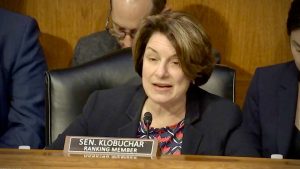Koh was speaking to reporters after meeting with the heads of eight policy and financial institutions at Seoul, where he discussed crypto and other matters.
Koh was quoted as stating:
“The Financial Intelligence Unit [a regulatory agency that answers to the FSC]’ cryptoasset-related labor resources have been increased and a cryptoasset inspection department has been established. We will check with the FIU to see if we are on the right track.”
But the industry is doing what it can to push back against regulatory policies that have seen all but four of South Korea’s crypto exchanges close or limit their services to crypto-only operations in the past few days. News1 quoted the head of the Korea Blockchain Enterprise Promotion Association as urging politicians to support a private member’s bill in parliament that would seek to unpick the current regulations and open the door for crypto exchanges that have no bank affiliations to offer fiat KRW trading.
The association was quoted as stating that the government and regulators had ignored the will of the “National Assembly, industry experts and the media,” allowing only “large corporations” to offer crypto exchange services.
It added that it was a “bitter pill to swallow for the “39 medium-sized exchanges who had also invested billions of KRW to build various systems and to obtain information security management system certification” – only to be told they had to switch to crypto-only business.
Trading figures have shriveled at most non-big four exchanges in the days following last week’s regulatory deadline.
Allowing these exchanges to go out of business could compromise the holdings of up to USD 8.4bn worth of customer funds, the association warned.
Meanwhile, across the sea to the East, Japanese regulators have been urged to limit or police peer-to-peer (P2P) crypto transactions.
Per Nikkei, legal experts have claimed that “direct [crypto] transactions between individuals have emerged as a hotbed of crime.”
The media outlet noted that the regulatory Financial Services Agency monitors transactions “through exchanges, but mainstream interpersonal transactions are not monitored.”
Experts called for a crypto fraud “deterrent,” and added that a joint “public-private sector collaboration” was “required to create, improve and spread” the “technical capabilities of tracking software.”
____
Learn more:
– Trading Volumes Collapse at Most S Korean Crypto Exchanges, New Restrictions Confirmed
– Crypto in Chaos, but Blockchain-powered Pay and Stablecoins Thrive in S Korea
– South Korean Ruling Party Squabbles over Crypto Tax
– South Korean Taxman to Be Granted Right to Search Crypto Tax Evaders’ Homes
– Japanese Regulator Has NFTs, IEOs in its Sights as it Eyes More Crypto Regulation
– Bank of Japan Identifies DeFi Pros & Cons, Mentions Uniswap, Yield Farming




















